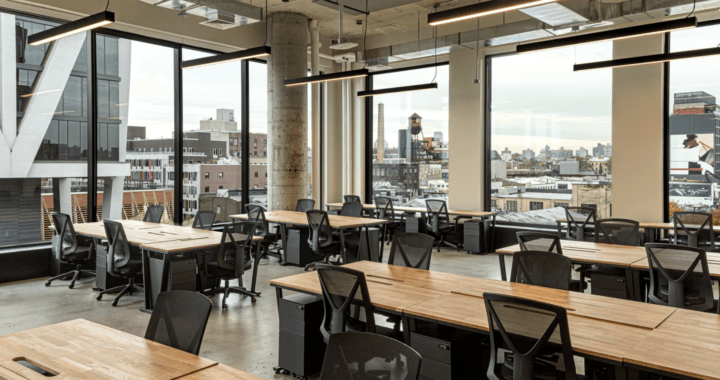The iconic skyline of Manhattan is more than just a symbol of ambition—it’s a reflection of constant reinvention. Today, that reinvention is playing out within its office buildings, where traditional workspaces are giving way to agile, tech-enabled environments. The business center NYC scene is evolving rapidly, fueled by hybrid work models, shifting corporate priorities, and the need for community-driven collaboration.
This transformation isn’t just cosmetic. It’s a fundamental shift in how New Yorkers work, interact, and grow their businesses.
The Rise of the Hybrid Office
Post-pandemic, companies across all industries—from finance to creative startups—are embracing flexible office solutions that blend in-person collaboration with remote freedom. According to CBRE’s 2024 Office Occupier Sentiment Survey, over 73% of companies in NYC now prioritize flexibility in workspace leasing, signaling a decline in demand for long-term, fixed office contracts.
Business centers have responded swiftly, pivoting to offer:
- Coworking spaces for solo entrepreneurs and freelancers
- Shared work environments that foster networking and casual collaboration
- Virtual offices for remote teams that still need a New York business address
This flexibility alleviates common fears around long-term leases and high overhead, especially for startups and SMEs.
Smart Spaces for a Smarter Workforce
Technology is reshaping what modern business centers offer. Many now feature:
- Smart office access through facial recognition or mobile apps
- Integrated booking systems for meeting rooms and hot desks
- Touchless amenities and high-speed connectivity for seamless workflows
This integration isn’t just about convenience—it’s about productivity. A study by JLL shows that tech-enabled workspaces can increase employee output by up to 23%, especially in fast-paced urban environments like New York.
Beyond Work: Building Community
While some fear isolation in coworking models, leading business hubs in NYC are countering this with curated community-building initiatives. Networking breakfasts, wellness classes, and industry-specific mixers are becoming the norm in business centers across SoHo, Midtown, and the Financial District.
This has proven particularly beneficial for early-stage startups, as shared ecosystems support:
- Access to mentors and investors
- Knowledge exchange between professionals
- Collaborative partnerships that lead to business growth
Sustainable by Design
Environmental responsibility is also a growing focus. Manhattan business centers are increasingly adopting green building standards, with features like:
- Energy-efficient lighting and HVAC
- Recyclable materials and furniture
- Indoor greenery and natural lighting
These efforts not only align with corporate ESG goals but also appeal to top talent. According to Deloitte’s 2023 Millennial Survey, 68% of young professionals prefer employers who prioritize sustainability.
Trends and Predictions
Looking ahead, the business center model in NYC is expected to diversify further:
- Niche business hubs for industries like biotech, media, and fintech
- Dynamic pricing models that scale with team growth
- All-inclusive memberships covering everything from coffee to conference rooms
As remote work cements itself into the corporate fabric, demand for flexible office spaces will only grow. Whether it’s for a flagship HQ or a satellite base, businesses are seeing the value in agility and access.
Conclusion: A New Era for NYC Workspaces
In the heart of Manhattan, the urban business landscape is no longer defined by skyscrapers alone—but by the people, ideas, and connections housed within. The business center NYC evolution is not a trend; it’s a permanent redefinition of work, tailored for modern professionals.
For businesses seeking the perfect balance of flexibility, functionality, and community, today’s NYC business centers offer more than just a place to work—they offer a place to thrive.

